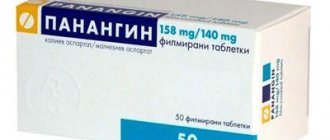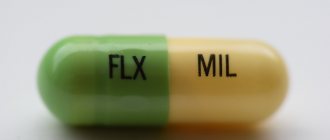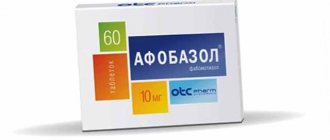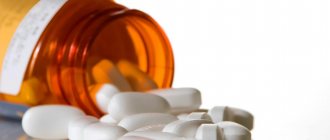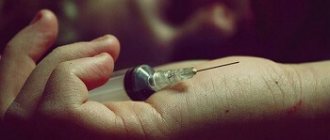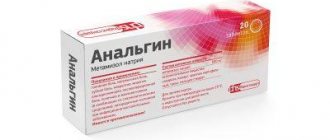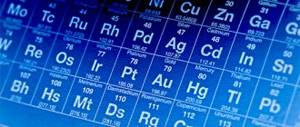If antibiotics are abused, intoxication of the body can occur. An overdose of amoxicillin is equally dangerous for both children and adults. With prolonged use of the drug, an allergic reaction develops, and anaphylactic shock may occur . Therefore, you need to be more careful about the use of antibiotics.
Description of Amoxicillin
The drug belongs to penicillins and is characterized by a wide spectrum of action. Negatively affects the vital activity of both gram-negative and gram-positive microorganisms.
It is commercially available in the form of tablets, powder for solution, and suspension.
The liquid form is quickly absorbed and penetrates the bloodstream, which ensures the disappearance of severe symptoms within 60 minutes after administration. When using tablets, the effect is observed after 1.5–2 hours.
It is excreted in urine in approximately 8 hours. If the patient has kidney pathologies, the process slows down.
Indications
Amoxicillin is often used for food poisoning caused by E. coli. An antibiotic is recommended for the following problems:
- peritonitis;
- pyelonephritis;
- cystitis;
- urethritis;
- bacterial skin infections;
- gonorrhea;
- pneumonia;
- sepsis;
- otitis;
- acute respiratory infections;
- endocarditis;
- feverish condition;
- osteomyelitis;
- gynecological diseases.
Amoxicillin is an antibiotic, so the drug is used when the cause of the illness lies in bacterial damage.
Contraindications
Do not take if the following factors are present:
- allergy to penicillins;
- bronchial asthma;
- Infectious mononucleosis;
- liver or kidney failure;
- lymphocytic leukemia;
- hay fever;
- gastrointestinal problems.
Amoxicillin should not be used while breastfeeding - the ingredients easily pass into milk. During pregnancy, it is prescribed if the benefit to the health and life of the mother outweighs the danger to the unborn child.
Pharmacological features of the drug
Amoxicillin is an antibacterial, bactericidal, acid-resistant agent with a wide spectrum of effects. The drug inhibits transpeptidase, disrupts peptidoglycan synthesis and causes bacterial lysis. The semi-synthetic agent is active against many aerobic gram-positive bacteria:
- Starhylocoscus spp., except for strains capable of producing penicillinase;
- Stretococcus spp.;
- aerobic gram-negative bacteria, including Neisseria gonorrhoeaa, Neisseria meningitidis, Escherichia coli, Shigella spp., Salmonella spp., Klebsiella spp.
Microorganisms that produce penicillinase are resistant to the active components of amoxicillin, but the presence of clavulanic acid in the drug composition neutralizes beta-lactamase resistance.
An organic compound based on 6-aminopenicillanic acid is absorbed quickly, by 93%, without destruction in the acidic gastric environment. A high concentration of the active substance in the total volume of distribution is observed in tissues, biological fluids and human organs, represented by:
- plasma;
- sputum;
- bronchial secretion;
- pleural fluid;
- peritoneal fluid;
- urine;
- contents in skin blisters;
- lung tissues;
- mucous membranes of the intestinal tract;
- organs related to the female reproductive system;
- prostate gland;
- fluid contents in the middle ear;
- bone tissue;
- lipid tissues;
- gallbladder;
- embryonic tissues.
The substance does not penetrate well enough through the blood-brain barrier and under conditions of inflammatory processes in the meninges. Partial metabolism is accompanied by the formation of inactive metabolites.
Dosage and method of use
It is not permissible to use it on your own. It is necessary to accurately calculate the amount of the drug, take into account contraindications for use, the patient’s condition, and age. In addition, treatment without preliminary diagnosis leads to a lack of positive effect - perhaps the medicine is useless against the infection.
Violation of the doctor’s recommendations provokes an overdose of Amoxicillin, so you need to adhere to the specified volume and form of the drug:
- Adults 250 mg 3 times a day. Drink plenty of water. Up to 1000 mg per 24 hours is permissible for special indications and with the knowledge of the doctor. For gonorrhea, 3 g is used once.
- It is better to give the child a suspension. Age category 5–10 years is allowed up to 5 ml three times a day.
- From 2 to 5 in the same mode, 2.5 ml each.
- For a child under 2 years old, 20 mg/kg.
Therapy lasts no longer than 12 days.
If you have kidney problems and need to use Amoxicillin, take it at intervals of 12 hours.
Lethal dose
Poisoning is diagnosed if 6 g of the drug is consumed per day. This amount and its excess if assistance is not provided can result in death.
Therapy
In order to prevent the absorption of amoxicillin into the blood, the doctor prescribes sorbents and laxatives . Since the antibiotic dissolves in water, the patient is advised to drink plenty of enveloping agents, including fats. This is milk, jelly, jelly.
Forced diuresis is performed. Through a dropper, solutions are injected into the patient’s blood to improve its rheological properties, and then diuretics. Thanks to this, harmful toxins are washed out of the blood. Forced diuresis is contraindicated in case of renal failure, as well as cardiac dysfunction.
If you start timely treatment, the consequences of a drug overdose will not appear . In rare cases, dysfunction of the kidneys and liver develops. If the auditory nerves are damaged, deafness disappears after overdose treatment.
Thus, an overdose of amoxicillin can be very dangerous for the body. Therefore, you can take the medicine only after a doctor’s prescription. If symptoms of poisoning appear, treatment is carried out under the supervision of a specialist.
General symptoms of overdose
If intoxication with Amoxicillin occurs, the following signs are noted:
- nausea;
- bouts of vomiting;
- diarrhea;
- cephalgia;
- weakness;
- epigastric pain;
- loss of appetite;
- allergic reaction;
- violation of taste perception;
- acute heart failure.
A patient with kidney disease is likely to have significant potassium loss.
Side effects
An antibiotic can have a negative effect on many organs, causing a variety of side effects:
In the central nervous system:
- Dizziness, headaches.
- Depression.
- Malaise.
- Excitation.
- Change of behavior.
- Insomnia.
- Confusion.
- Convulsive reactions.
- Anxiety.
In the digestive organs:
- diarrhea;
- flatulence;
- vomiting;
- dry mouth;
- stomatitis;
- loss of taste and appetite;
- dyspepsia.
Various allergic reactions:
- Anaphylactic shock.
- Hives.
- Conjunctivitis.
- Quincke's edema.
- Erythema.
- Acute generalized rash.
- Stevens-Johnson syndrome.
- Vasculitis.
In the cardiovascular system:
- tachycardia;
- leukopenia;
- neutropenia;
- transient anemia;
- agranulocytosis;
- eosinophilia.
Other body reactions:
- Dysbacteriosis.
- Shortness of breath, difficulty breathing.
- Anemia.
- Candidiasis.
- Joint pain.
- Formation of superinfection.
- Pseudomembranous colitis, etc.
The body's reactions to an overdose
Excessive consumption is manifested not only by the general clinical picture of poisoning. The pathology is accompanied by specific symptoms that are determined by damage to a particular organ or system.
Symptoms of an overdose of Amoxicillin:
- Toxic – common for poisoning, leading to dehydration.
- Liver damage is accompanied by cell death, the development of yellowness of the mucous membranes, and liver failure, which becomes the cause of death.
- Hematopoiesis problems – anemia is noted.
- Allergies - up to rapid anaphylactic shock. Redness of the skin, shortness of breath, fainting, and Quincke's edema are also possible.
- Impaired kidney function - prolonged use leads to accumulation of active substances, overdose. Pathology can be detected by performing a blood test. Protein content increases.
- Lesions of the central nervous system - hearing loss, sometimes deformation of the optic nerve.
To avoid poisoning with Amoxicillin, it is enough to follow the recommendations of your doctor.
Prevention
To prevent damage, it is enough to follow simple rules when treating with Amoxicillin:
- Do not leave the drug in sight, as a child may try it.
- Do not violate medical recommendations, adhere to the indicated dose.
- Do not exceed the duration of the treatment course.
- Do not use expired product.
- Do not prescribe the drug yourself.
Even if you feel slightly unwell, it is advisable to consult a therapist. Perhaps Amoxicillin is not suitable and you need to replace it with analogues - Amoxiclav, Augmentin, Flemoxin Solutab. But in any case, if there is a clinical picture of poisoning, the medication should be stopped.
Antibacterial therapy is necessary if infection develops. However, antibiotics should be used with caution, carefully following the instructions, avoiding overdose. This is why it is currently impossible to purchase antibacterial drugs without a prescription - thus reducing the risks of intoxication as a result of independent use. But if you managed to buy the drug bypassing the law, at the slightest sign of poisoning, medical attention is needed - home treatment often provokes a deterioration in the condition of the affected person.
Source: BezOtravleniy.ru
Child intoxication
Doctors constantly emphasize that treatment of colds in children should take place in the first days without the use of antibiotics. Antibacterial agents are prescribed when symptomatic measures do not produce the desired effect.
Self-use of the medicine usually causes an imbalance of the intestinal microflora, severe poisoning.
An overdose of Amoxicillin in a child provokes consequences that often lead to disability of the baby.
The problem is that using an antibacterial drug with minor intoxication will make the drug ineffective in the case of a severe clinical picture. Therefore, doctors prefer not to resort to antibiotics excessively.
Application
An antibiotic can be used in the following cases:
- For infectious diseases of the respiratory tract (bronchitis, sinusitis, otitis, pharyngitis, sore throat, pneumonia).
- Skin diseases of an infectious nature (erysipelas, dermatoses, burns, impetigo).
- Urogenital infections (cystitis, urethritis, cervicitis, pyelitis, pyelonephritis and others).
- Infections of the digestive system, abdominal infections (dysentery, peritonitis, typhoid fever, salmonellosis and others).
- Surgical, gynecological infections.
- Meningitis.
- Bacterial endocarditis.
- Listeriosis.
- Sepsis.
- Osteomyelitis.
- Gonorrhea.
- Borreliosis (Lyme disease).
First aid
At the slightest symptoms of amoxicillin intoxication, call the emergency room. Before the arrival of doctors, the following procedures are performed:
- Artificially induce vomiting to remove the remaining Amoxicillin from the stomach. This measure is effective only with initial signs, since the drug is absorbed into the blood quite quickly. Use a weak solution of potassium permanganate.
- It is recommended to take a sorbent at home, for example, Activated carbon.
- The victim needs to drink more, but not water, but fatty, enveloping foods - jelly, milk.
If you get help in a timely manner, the risks of complications and death are reduced.
Compatibility of Amoxicillin with alcohol: effect on humans and consequences of taking
Amoxicillin #8212; a drug that has bactericidal and antibacterial effects.
This is an antibiotic belonging to the penicillin group.
The effect of the drug is quite fast even with serious diseases.
It can be taken orally, but combining the medicine with alcohol is not recommended.
Interaction of the drug with alcohol
It was already mentioned above that Amoxicillin causes breathing difficulties. Alcohol also affects breathing. Increased impact on the respiratory center of the brain can lead not only to serious respiratory problems, but also to death.
The effect of the antibiotic begins 2 hours after the drug has undergone absorption. The action lasts up to 8-9 hours.
The next day, Amoxicillin will no longer affect the body. However, doctors prohibit drinking alcohol for at least a week after treatment.
After all, all treatment cannot be accomplished with a one-time antibiotic. This goes on for a long time. Alcohol will only worsen the entire treatment and the disease may come back.
Of course, the patient himself has the right to decide whether to drink alcohol during treatment with Amoxicillin or not. Almost all patients who took Amoxicillin leave positive reviews.
The antibiotic acts quickly and is aimed at treating almost all major organs. It is able to fight the following diseases:
- Respiratory system: purulent tonsillitis, lung abscess, bronchial lesions, otitis media, sinusitis.
- Digestive tract: peritonitis, acute intestinal infections, cholecystitis.
- Genitourinary system: pyelonephritis, gonorrhea, purulent diseases.
- Abscesses on soft tissues, sepsis.
Naturally, there are also negative reviews, but all of them are due to the fact that the drug has not the most pleasant side effects. With alcohol consumption, as is already known, they only get worse. Treatment becomes pointless.
Many doctors, when prescribing an antibiotic, take into account the benefits of the drug relative to the possible harm from taking it. That is, antibiotics are taken only in serious cases, when without them recovery is impossible or is fraught with complications. Often, taking antibiotics is accompanied by additional drugs that are designed to combat the consequences of the main treatment. So, taking antibiotics is often characterized by the following side effects.
- Since good bacteria die along with bad bacteria, the intestinal microflora completely dies. This often leads to either diarrhea and gas, or severe constipation.
- The microflora can also be disrupted in the vagina. Because of this, after antibiotics, a woman often develops candidiasis.
- Antibiotics destroy the immune system completely or partially. That is why many doctors are prepared for the fact that after taking strong antibiotics, the patient often gets sick again.
- Antibiotics affect the functioning of the liver, since it bears the brunt of the impact.
- If you take an antibiotic orally, that is, in tablets, this can often cause gastroenterological problems. It is better to take the medicine by injection.
In addition, antibiotics, like other drugs, can cause individual intolerance and cause an allergic reaction in the form of rash, swelling and redness.
how to remove toxins from the body
Treatment methods
Therapy involves removing Amoxicillin from the body and eliminating characteristic symptoms:
- Laxatives and sorbents are prescribed.
- Diuretics are used intravenously. Contraindications to the procedure are heart rhythm disturbances, renal failure.
- If necessary, resort to hemodialysis.
You should not refuse hospitalization, as an overdose is fraught with serious complications.
Violation of excretion
The rate of excretion changes under certain pathological conditions:
- In severe kidney disease with organ failure, the half-life of amoxicillin increases to 7 hours, and for clavulanic acid - up to 4.5 hours.
- Clavulanate is retained in the body during liver diseases in acute and chronic forms. Its metabolites may have toxic effects.
If internal organs fail, doctors remove Amoxiclav components from the body using hemodialysis or peritoneal dialysis.
Possible consequences
Poisoning and lack of qualified assistance provoke:
- Disorders of the heart muscle, liver, kidneys, lungs.
- Complete deafness.
- Exacerbation of chronic pathologies.
- Allergies up to angioedema and anaphylactic shock, which cause death or coma.
First aid in case of overdose and contacting doctors significantly reduce both the risks of negative consequences for the body and the likelihood of death of the patient.
Drug interactions
For gastric ulcers and progressive tuberculosis, the antibiotic enhances the effect of Metronidazole. Semi-synthetic penicillin affects the pharmacodynamics of contraceptives and reduces their effect.
The medicine is compatible with such drugs as:
- Cycloserine;
- Ceftriaxone;
- Cefazolin;
- Vancomycin;
- Rifampicin.
Bacteriostatic drugs are antagonists of a semisynthetic drug.
The combined use of Amoxicillin with Erythromycin is not recommended.
It is not recommended to take it together with medications such as:
- Chloramphenicol;
- Tetracycline;
- Erythromycin;
- Josamycin;
- Biseptol.
The following drugs affect the concentration of the antibiotic in the blood serum:
- Indomethacin;
- Aspirin;
- Phenylbutazone;
- Sulfinpyridazone;
- Allopurinol.
Diuretics and magnesium oxide reduce the absorption of the semisynthetic drug.
Aspirin influences the concentration of the antibiotic in the blood serum.
Price
Cost of semi-synthetic antibacterial drug in capsules, 500 mg, 16 pcs. is 104 rubles.
Medicine in tablets 500 mg, 20 pcs. produced by Biokhimik Saransk (Russia) sells for 59 rubles.
Somewhat more expensive is the antibiotic from Hemofarm (Serbia) in capsules, 250 mg, 16 pcs. – 64 rub.
Antibiotic Amoxicillin from Hemofarm (Serbia) in capsules, 250 mg, 16 pcs. costs 64 rubles.
Reviews
Anna, pediatrician, Rostov-on-Don: “I rarely prescribe the drug, because it has a limited spectrum of action. The medicine is convenient to take for children of different ages. The antibiotic causes allergic reactions. I do not recommend the drug for self-treatment.”
Olga, therapist, Yaroslavl: “I prescribed the drug in the complex therapy of gastritis. I note its positive effect on the intestines and a minimum of side effects. The bioavailability of the drug is high, the price is reasonable.”
Valeria, 30 years old, Kazan: “I took the pills as prescribed by the doctor. The medicine helped get rid of unpleasant symptoms: cough, fever. The only negative is that the intestinal microflora has suffered. I took a drug to restore digestion. The treatment results are encouraging."
Tatyana, 36 years old, Novosibirsk: “I advise you to take the medicine on the recommendation of a doctor. The semisynthetic antibiotic is effective; children should take it at the dose recommended by the doctor. I gave the drug to my daughter and did not notice any side effects.”
